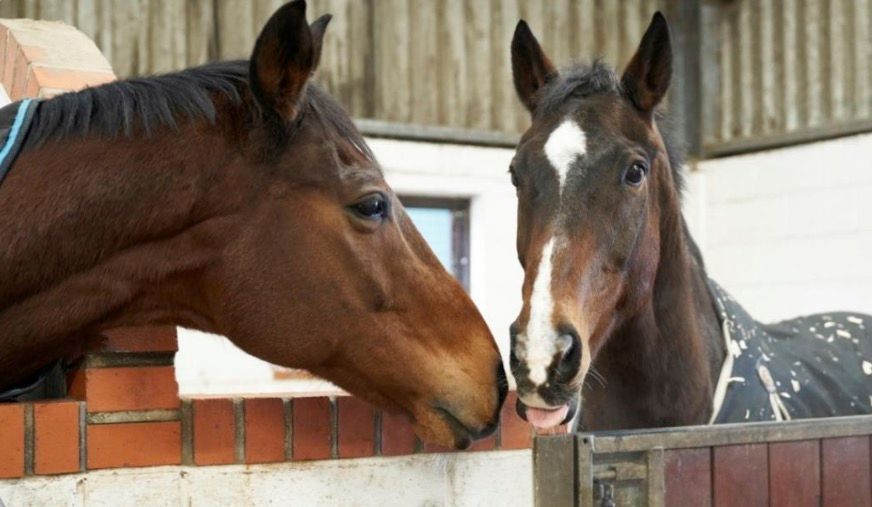These are coping mechanisms as the horse instinctively reacts to its confinement in a stable for too long, lack of grazing as nature intended and lack of social interaction with other members of his or her herd. In other
words, when we take away the three main survival instincts that the equine was born with, we cannot expect him or her to survive and thrive. Sometimes it is unavoidable as horses sometimes have to be stabled and turnout may not always be possible. However, this situation is not ideal and can cause what we call stable vices which can have a negative effect on our beloved horses.
Developing methods, sometimes punitive to the horse to stop these so called ‘vices’ occurring by inflicting more restrictions will NEVER cure the problem. Providing good grazing, adequate forage when stabled and companionship with other members of the herd will eradicate these damaging problems. I do have first-hand evidence of this as I have helped many horses who arrived at our Rehabilitation Centre with very stressful stable vices. With the correct respect for their natural environment and a better management regime these problems were solved very quickly. It requires understanding of the horse’s needs and respecting them which I believe we all strive to do as best we can.



